Compare Reward Credit Cards - Australia
Savrr.com is a trading name of Fair Comparison Pty Ltd. Comparison is powered by Fair Comparison Pty Ltd who don’t compare all providers in the market, or all products of those compared. Fair Comparison does not provide credit assistance or advice and may receive a fee if you click on, apply, or are approved, for a product.
Learn More
- Default
- Rewards Rate
- Longest Purchase Period
- Longest Balance Transfer Period
- Lowest Cash Advance Rate
Savrr.com is a trading name of Fair Comparison Pty Ltd. Fair Comparison compares loan products from a range of banks and other financial or credit product providers and does not compare all products in the market or all product features. To filter the results, you will need to enter some basic information which will generate a comparison of products that fall within those parameters. The default ordering of products is based on the Rewards Rate. Fair Comparison do not take into account your objectives, financial situation or needs, or provide advice, assistance, or recommendations.
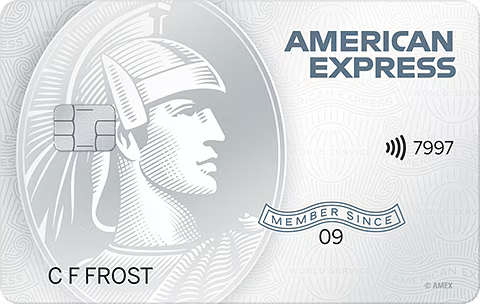
American Express - The American Express Essential Rewards Credit Card
Rewards Rate One

Latitude Financial Services - David Jones Prestige Credit Card
Rewards Rate One
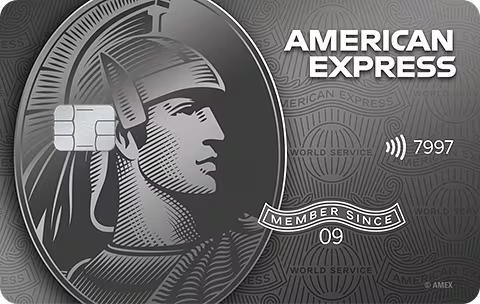
American Express - The American Express Platinum Edge Credit Card
Rewards Rate One
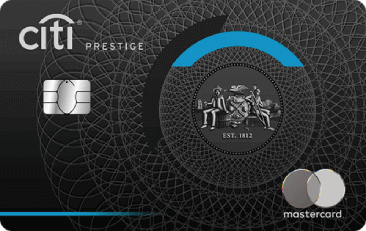
Citi - Prestige Credit Card
Bonus Reward Points
Rewards Rate One
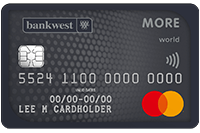
Bankwest - More World Mastercard
Rewards Rate One
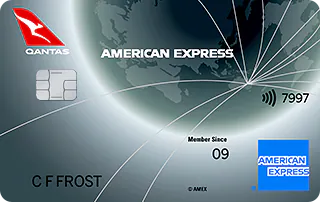
American Express - The Qantas American Express Ultimate Card
Rewards Rate One
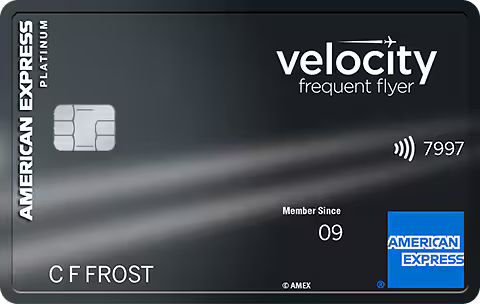
American Express - The American Express Velocity Platinum Card
Rewards Rate One
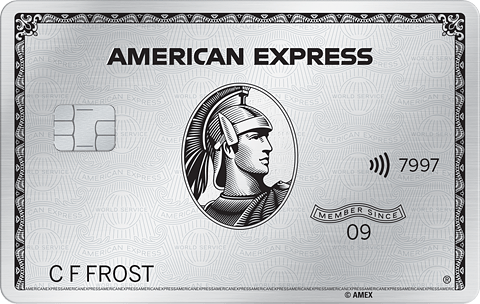
American Express - The American Express Platinum Card
Rewards Rate One
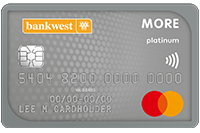
Bankwest - More Platinum Mastercard
Rewards Rate One
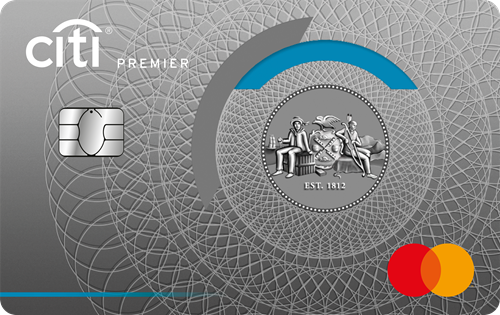
Citi - Premier Credit Card
Bonus Points offer
Rewards Rate One
Rewards Credit Card Guide
The vast array of rewards credit card options available in Australia can be pretty mind-boggling. But you don’t have to sift through the hype and spend hours with a dictionary to decode the jargon.
Below, we explain how these kinds of credit cards work and give you an easy-to-follow guide to help you compare rewards credit cards, so you can find one that suits your needs and spending habits.
What are rewards credit cards?
Ok, first things first. What counts as a reward credit card? The answer is simple, but applying it isn’t necessarily straightforward. You see, a rewards credit card is any credit card that rewards you for shopping with it. But there are many kinds of rewards credit cards. The most common in Australia are:
- Cashback credit cards
- Frequent flyer credit cards
- Bonus points credit cards
- Credit cards with other dedicated rewards programs
Australian credit cards, including rewards varieties, can also come in different levels. For example, there are diamond, gold, and platinum credit cards (and many other colour designations too). When it comes to rewards credit cards, the programs at each level differ by earn rate and rewards.

No matter the kind, all rewards credit cards return some part of your spent credit in the form of cash, vouchers, points, gift cards, flights or some other kind of reward. Here are some examples of the more common and popular types of cards.
Store-specific rewards
Are you an outdoor enthusiast keen to enjoy all the recreational opportunities Australia has to offer? Do you love fashion? Are you a technophile with a passion for the latest and greatest tech?
Whatever the niche is, there may be a store credit card that rewards it. In some cases, all purchases anywhere could earn you something. Often though, the benefit of these cards is that you could get extra points for purchases at specific stores.
Supermarket rewards
Everyone eats, so most of us could make use of a credit card that reduces the cost of grocery shopping — whether that’s a reward credit card that delivers perks for a specific supermarket chain or across all supermarkets.
General rewards
There are also a great many general rewards credit cards that grant points you can put towards a wide range of products and services. Usually, the credit card company chooses the services and products you can redeem points for (and they’ll have a catalogue of those), but that’s not always the case.
Airline awards
Many major airlines now have a credit card rewards program. You can earn rewards points, called frequent flyer points, and trade them for airfares, travel vouchers or other rewards when your points balance reaches a given threshold value. The exact nature of the programs differs by lender and airline, but almost without exception, a portion of any purchase you make turns into some kind of reward.
Some cards offer a higher return when you purchase a fare or other service through the airline, where you can redeem your points. These programs are often popular with families, business travelers and other frequent flyers.
Travel rewards
Frequent flyer cards aren’t the only kinds of travel rewards cards. There are plenty of opportunities to earn points toward free stays at hotels and discounts on car rentals, just to name two examples. A card can be brand-specific, or it can give points or vouchers that you can apply to a destination or provider of your choice.
Petrol rewards
Even when costs aren’t rising, many people love saving money or earning points when filling up at the bowser. Some companies offer credit cards that return discounts per litre when you fill up - often these can be called fuel cards. Others may offer additional points when linking to a store's rewards card and filling up at their branded petrol stations.
How do reward credit cards work?
Whenever you use your rewards credit card to buy something (an eligible purchase), you earn something back in points, cash or whatever else the lender offers as part of its program.
Typically, eligible purchases can be either made online or in-store directly with the credit card or via a service like Apple Pay. That maximises your opportunities to earn and build points.
Cash advances, payments to government organisations (e.g. the ATO) and some other purchases may not be eligible for rewards, so always check the terms and conditions of the card you’re considering to understand what proportion of your spending may earn you rewards.
Some cards also offer opportunities to earn bonus points. This often involves reaching a minimum spending target within a specified timeframe after signing up. Timing your application around a major planned purchase can be a good way to reach those kinds of bonuses.
Once you begin earning rewards, you’ll be able to redeem them in various ways. If your credit card grants credit-card-related rewards, like fee waivers, redemption may be automatic. If yours is a cashback credit card that deposits money into a linked bank account, you’ll be able to use that money when it arrives.
For cards that grant points and other similar kinds of rewards, you may be able to use them immediately or you may have to wait until you reach a minimum threshold. Some card providers may allow you to combine points and cash to pay for products and services, while others may require you to pay entirely in points.
The only way to know exactly how to redeem the rewards from a specific card program is to check the terms and conditions of that program.
In all other ways, rewards credit cards work just like other cards. For example, you’ll be charged interest if you don’t repay your account balance by the end of your statement period.
Rewards credit card benefits and disadvantages
There are a variety of potential benefits and disadvantages of rewards credit cards, depending on how you use it and your own circumstances.
Rewards credit cards benefits:
- You may be rewarded for expenses you’d be paying even if you didn’t have the card
- The net result of earning rewards may be that you pay less for the products and services you buy
- You may gain access to perks you couldn’t otherwise buy
- Credit cards may offer greater protection against card fraud than debit cards do
- Having a credit card, and using it responsibly, could help build a positive credit history and increase your credit score
Rewards credit cards disadvantages:
- The promise of rewards may encourage you to overspend
- If you don’t make your repayments on time, your rewards may not outweigh your interest charges
- If you don’t keep your account in good standing (you don’t make your minimum repayments), your rewards may be revoked
- Points can expire or become less valuable if the number of points required to buy something increases

What is the best rewards credit card?
Ok, this is probably the bit you’ve been waiting for — the big reveal about which is the best rewards credit card. The thing is, there’s no single ‘best’ rewards credit card or program. After all, we’re all different, so what’s best for one person isn’t going to be suitable for everyone or even the majority of us.
Even if there was a program that provided the greatest monetary-value rewards, that wouldn’t mean it would be the best for everyone. Imagine a reward program that gave dog food to the value of 10 per cent of all purchases. That reward value would be incredibly attractive to dog owners, but it wouldn’t be very useful to anyone who didn’t own a dog.
But just because there’s no best option doesn’t mean we can’t give you a raft of tips to help you to effectively compare rewards credit cards, equipping you with information to help choose a suitable option for your needs and circumstances. So, start with the guide on our main credit card comparison page and then add in these questions:
- What are you really looking for? Do you want to access perks you can’t get elsewhere? If so, that narrows your choice down to cards that offer those perks. Do you just want to reduce your expenses as much as possible? If so, cards that offer rewards in forms you use regularly are more likely to be suitable.
- Are there maximums or minimums? Some programs cap rewards at certain levels. If you’re likely to earn past the cap, then you might want to look for a different program with a higher cap or none at all. Other programs only give rewards when you make a minimum spend. If you’re not going to make the minimum spend with your normal shopping habits, that program is unlikely to be a good option for you.
- Do rewards expire or have a history of losing value? Check the terms and conditions carefully to see if rewards have an expiration date. And see if you can find old rewards catalogues or terms and conditions that can show you how points used to be valued. Both may be fine if you can use your rewards soon after you earn them — ‘use it or lose it’ is a good mantra to keep in mind with many rewards programs — but if, for example, it’ll take you a while to accrue enough points to redeem, you might never get to actually use the rewards.
- How long would you have to wait until you could use the rewards? This might seem a duplicate of the above question, but there’s a different reason for the question. You see, if it’s going to take you six years to accrue enough frequent flyer points to buy or upgrade a flight (for example), you might consider whether you’ll still have the card that far into the future.
- Will you be able to pay off your credit card balance? In more than a few cases, a single month’s worth of interest charges could cost more than the value of a year’s worth of rewards.
- Will the value of the rewards you earn outweigh any fees? If not, consider whether the card offers other benefits that make the fees worth it, or if a card with no rewards but lower fees is more suitable.
- Are there external membership fees? If the rewards from the card are connected to another membership, you may have to pay to become a member if you’re not already, and you should factor that cost into your comparison. As an example, a frequent flyer rewards card may require you to become a member of at least one of the many airline frequent flyer programs and that may require a membership fee.
While these questions will help you compare rewards credit cards, there’s one other question to ask that could rule some options out completely. Do any of the cards you’re considering have minimum income requirements (or any other eligibility requirements)? It’s always important to check eligibility requirements when comparing credit cards because if you apply for a card you’re ineligible for, your application may be denied and that could impact your credit score.
Not all cards include minimum income requirements in their eligibility criteria. However, lenders issuing rewards credit cards are more likely to be concerned about your income because their cards are more likely to come with a higher interest rate that will make interest payments harder.
Compare rewards credit cards effectively
Due to there being a wide range of rewards credit cards, comparing various options can be especially challenging. But with the information we’ve shared in this article and our main credit card comparison guide, you should be well-equipped to understand how multiple options differ and match those variations to your goals, needs and spending habits to help you compare a range of credit card options.
Rewards Credit Card FAQs
Are rewards credit card rewards worth it?
Credit card rewards can be worth it, but it depends on your circumstances. It's important to weigh up the cost of the card to you against the rewards you are receiving to see if it's worth it. Paying off your credit card balance in full each month can help reduce interest costs, by taking advantage of any interest free period on eligible purchases. It also helps to make the most of the rewards you're eligible for.
How to use credit card reward points?
Many rewards credit cards allow you to link to an existing loyalty program, such as Qantas frequent flyers or Virgin Velocity. Others have their own rewards programs with an online store, allowing you to redeem your points for rewards. These websites often operate just like any online store, where you can buy goods such as clothing, electronics, appliances, toys, vouchers and travel. At checkout, you generally use your points to make your purchase - along with your credit card if the total is higher than your points balance.
Should I get a rewards credit card?
Whether a rewards credit card is the right choice for you will depend on several factors, including how you intend to use your credit card, the cost, and the rewards. It's important to weigh up the cost of the card to you against any rewards or benefits to see if it's worth it. It's also wise to consider if the rewards or points you can redeem are of value to you, for example, if you don't travel a card that offers travel rewards is probably offers less value compared to one that offers shopping vouchers for groceries or petrol.
Are credit card cash rewards taxable?
The good news is that, according to the ATO, credit card rewards - including goods, services, travel and cash back - are not considered assessable income for tax purposes, as long as they are for personal use, for now. It can be a good idea to check with an accountant, as some rewards may be taxable for a business.
Can you use business credit card rewards for personal use?
Whether it's okay to spend business credit card rewards on yourself will depend on your employer and their policy, and the terms of the credit card and rewards program. If you own your own business, it may be worth getting some advice from an accountant about how you use your rewards, because in some cases business rewards may be assessable for tax.
How do you link credit cards to Qantas Frequent Flyer accounts?
A Qantas rewards credit card will usually ask for your Qantas frequent flyer details during your application. In addition, a Visa or Mastercard can be linked to your Qantas Frequent Flyer account by signing into your frequent flyer account on the Qantas website, and selecting 'Link card'. Alternatively, on the app, go to 'Shop' > 'My cards' > 'Manage cards' to add a new card.





